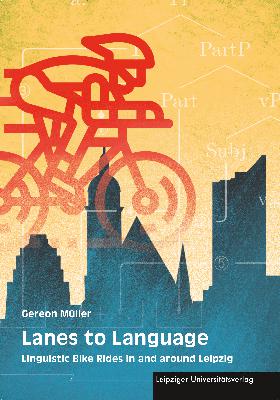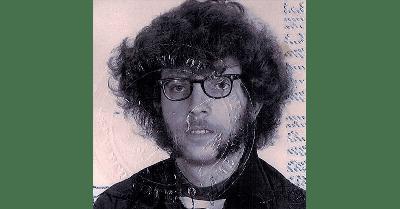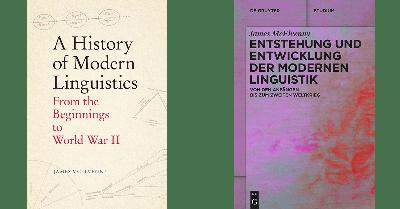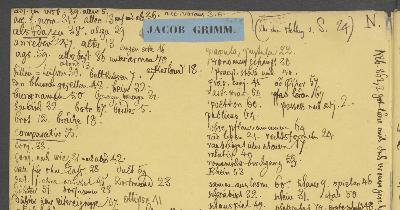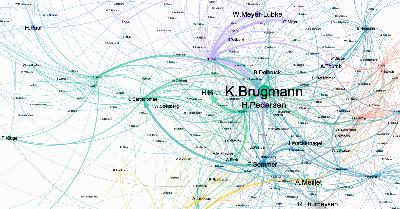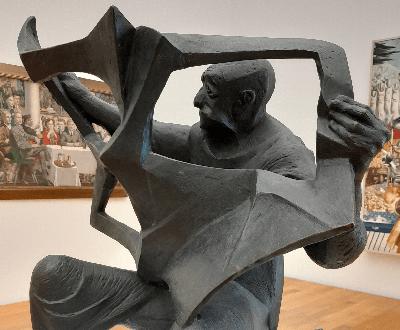Podcast episode 38: Interview with Dan Everett on C.S. Peirce and Peircean linguistics
Description
In this interview, we talk to Dan Everett about the life and work of the American pragmatist philosopher Charles Sanders Peirce and Everett’s application of Peirce’s ideas to create a Peircean linguistics.
<figure class="wp-block-audio"></figure>
Download | Spotify | Apple Podcasts | Google Podcasts
References for Episode 38
Cole, David. 2023. “The Chinese Room Argument”, The Stanford Encyclopedia of Philosophy (Summer 2023 Edition), eds. Edward N. Zalta & Uri Nodelman. https://plato.stanford.edu/archives/sum2023/entries/chinese-room/
Everett, Daniel L. 2012. Language: The Cultural Tool. New York: Pantheon Books.
Everett, Daniel L. 2017. How Language Began: The Story of Humanity’s Greatest Invention. New York: Liveright.
Everett, Daniel L. 2023. ‘Underspecified temporal semantics in Pirahã: Compositional transparency and semiotic inference’, in Understanding Human Time, ed. Kasia M. Jaszczolt, pp. 276–318. Oxford: Oxford University Press.
Transcript by Luca Dinu
JMc: Hi, I’m James McElvenny, and you’re listening to the History and Philosophy of the Language Sciences podcast, [00:15 ] online at hiphilangsci.net. There you can find links and references to [00:19 ] all the literature we discuss. Today we’re joined by Dan Everett. Dan is Professor [00:25 ] of Cognitive Sciences at Bentley College in Massachusetts. His background is in field [00:31 ] linguistics and linguistic theory, and he’s of course best known for his work with the [00:37 ] Pirahã in the Brazilian Amazon. The conclusions he’s drawn about the structure of the Pirahã [00:43 ] language have significant consequences for much of mainstream linguistic theory, especially [00:49 ] for generative grammar in the Chomskyan tradition. These consequences have been debated extensively. [00:56 ]
At the moment, Dan is researching most keenly the life and work of the American philosopher [01:01 ] Charles Sanders Peirce. This project is not unrelated to his work on Pirahã and his previous [01:08 ] contributions to linguistic theory. These various threads are now coming together in Dan’s proposal [01:15 ] for a Peircean linguistics, and this is what he’s going to talk to us about today.
So to set the [01:22 ] scene for us, can you tell us, who was C.S. Peirce? What were his intellectual contributions, [01:29 ] and why are they important?
DE: I’m actually writing a biography of Charles Sanders Peirce for [01:35 ] Princeton University Press, and I’ve been interested in Peirce now for about six years [01:42 ] seriously, and before that I did cite him quite a bit in my How Language Began from 2017 and [01:51 ] also in my Language: The Cultural Tool from 2012, but I got seriously interested in Peirce [01:59 ] some years later. The first time I heard about Peirce, and then I’ll get to who he is, was [02:05 ] actually from Chomsky, who called him his favorite philosopher and talked about the [02:10 ] Peircean concept of abduction, which is the formalization of hypothesis formation. [02:16 ]
Charles Peirce was born in Cambridge, Massachusetts, to Benjamin and Sarah Peirce in 1839. [02:26 ] Benjamin was for 50 years professor of mathematics at Harvard and was considered the leading [02:33 ] mathematician in the United States and the person who put U.S. science on a nearly equal footing [02:41 ] with the European science of mid-19th century, and he was a very interesting person in his own [02:47 ] right, founder of the National Academy of Sciences and the American Association for the Advancement [02:53 ] of Science, co-founder.
Charles was raised in Harvard Yard. When he was a boy, they lived [03:02 ] actually in Harvard Yard, and his friends and his father’s friends were some of the leading [03:07 ] intellectuals of the United States, and later as Peirce grew, his own friends became leading [03:15 ] intellectuals and friends of people such as Thomas Huxley and others.
But Charles initially became [03:23 ] interested in logic and chemistry, and for most of his life… The only degree that he actually ever held [03:33 ] was in chemistry. He held a master’s degree and a bachelor’s degree in chemistry from [03:41 ] Harvard, and he was then hired as an astronomer and as a geophysicist with what was then called [03:51 ] the U.S. Coastal Survey, which is now NOAA. They actually launched a ship called C.S. Peirce. [03:59 ] So he got mainly interested in logic, but he was also one of the greatest polymaths in history. He [04:07 ] was the first person in the United States to do experimental psychology. He was the inventor of [04:15 ] propositional and first-order logic with quantifiers, nearly simultaneously with Frege. [04:20 ] They didn’t know about each other’s work. Peirce is also known as the inventor of American pragmatism, [04:26 ] or just pragmatism. That’s a philosophical school of America that is often associated with [04:30 ] William James. He is the inventor of semiotics, and there’s evidence that Saussure actually [04:38 ] was able to consult some of Peirce’s work on semiotics before he came out with his own work [04:44 ] on semiotics, which was very different and designed for a very different purpose. [04:51 ]
So in mathematics, Peirce took his father’s place as the number one mathematician in the United [04:57 ] States, and there are many articles on mathematics. So he was a phenomenal polymath. He was one of the [05:03 ] leading Egyptologists in the world, and he was… In his notebooks I have copied, there are analyses of [05:12 ] Tagalog syntax, and he was very interested in languages. He published about 127 articles on [05:21 ] linguistics or linguistic themes, including the first-ever phonetic study of Shakespearean [05:27 ] pronunciation. His father had produced the first formal study of phonetics in the United States, [05:33 ] or one of the first.
So he was this astounding person, but when he died, [05:40 ] he never held an academic post except for four years at Johns Hopkins. He was one of the first [05:46 ] professors hired at the new University of Johns Hopkins, but Peirce was a very egocentric person. [05:54 ] He thought he was smarter than everybody else. He probably was. He didn’t like to take orders. [05:59 ] So he lost his job at Johns Hopkins. Also from the fact that he liked to drink, and he was seen [06:06 ] coming out of a hotel with a woman who was not his wife, and that really got the trustees of [06:11 ] Johns Hopkins upset. He eventually married her. But he was fired. He was eventually fired from [06:17 ] his job at the U.S. Coastal Service after 31 years, and this was in the day before pensions, [06:22 ] before retirement plans.
So he was left penniless when he was roughly 60 years old, 62 years old. [06:31 ] He was left penniless and survived through the contributions of William James, who led a great [06:39 ] effort to round up people from Alexander Graham Bell to Andrew Carnegie to contribute monthly [06:46 ] to Peirce. But it was very pov… It was a poverty-level contribution, but it kept him from death, I mean, [06:53 ] and starvation.
Peirce, according to his diaries, was usually up at 7:30 in the morning and worked [06:59 ] till about midnight or 1 AM every day, seven days a week, and his neighbors said that the light [07:05 ] was always on in his study, and poverty did not keep him from working a tremendous amount. [07:11 ]
His papers originally were not well organized after his death. They were picked up and sold [07:17 ] for a very small price to Harvard, and Harvard took them and tried to organize them, but because [07:23 ] of his reputation for immorality, in part, Harvard wouldn’t allow access to those papers, [07:30 ] and so it was very hard to do work on Peirce. And one of the chairmen of the Harvard philosophy




